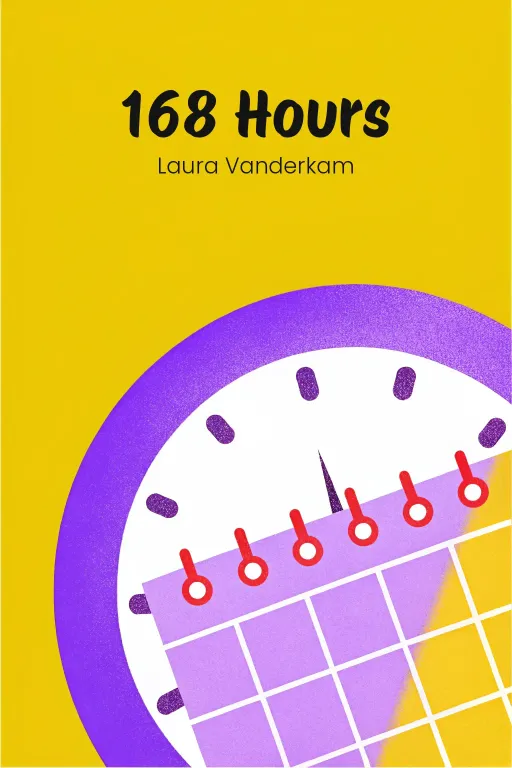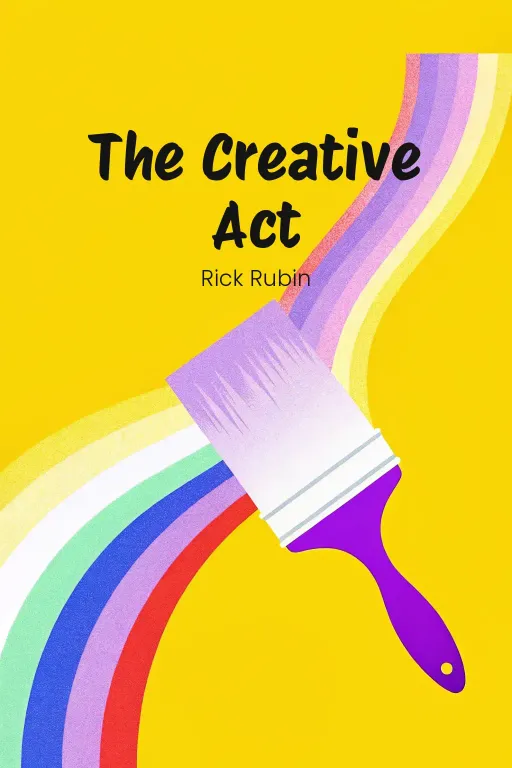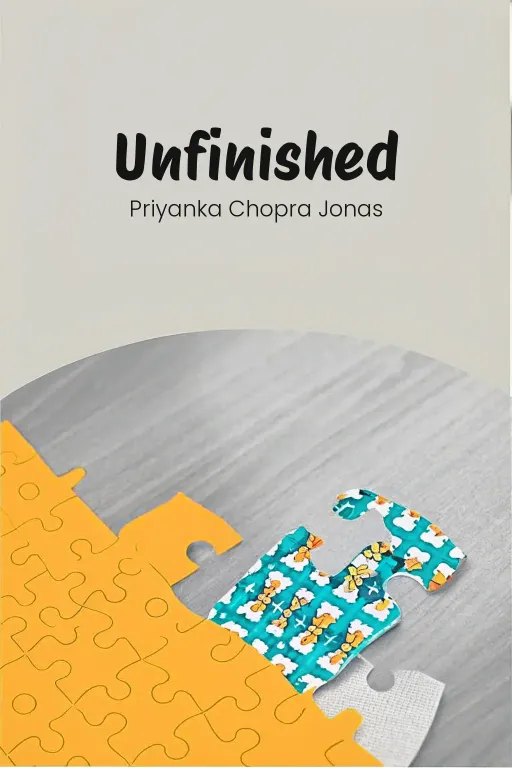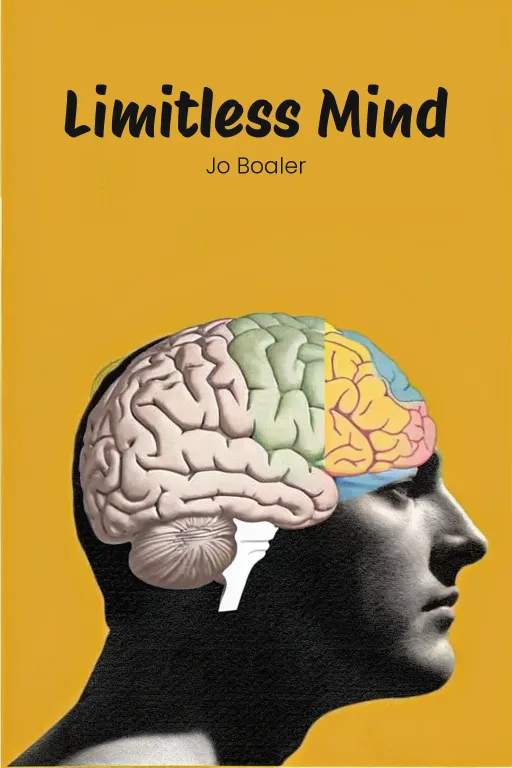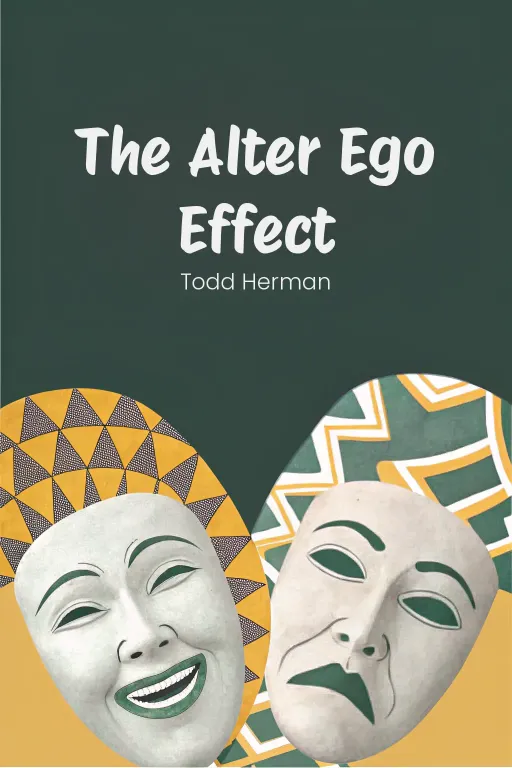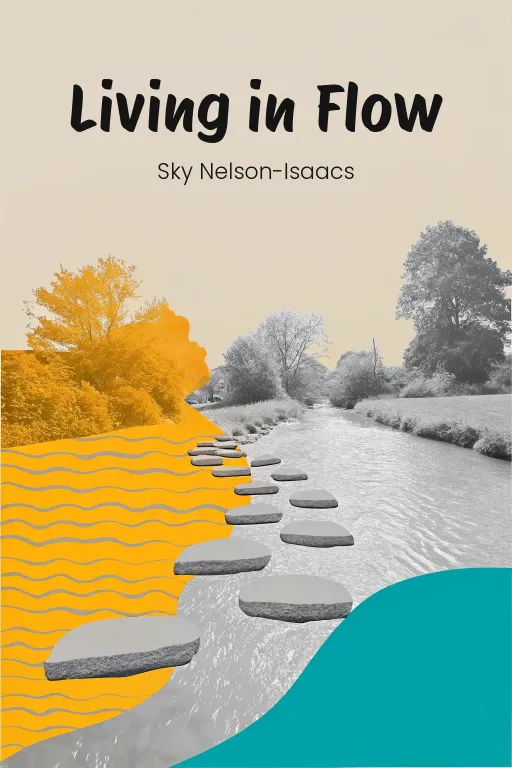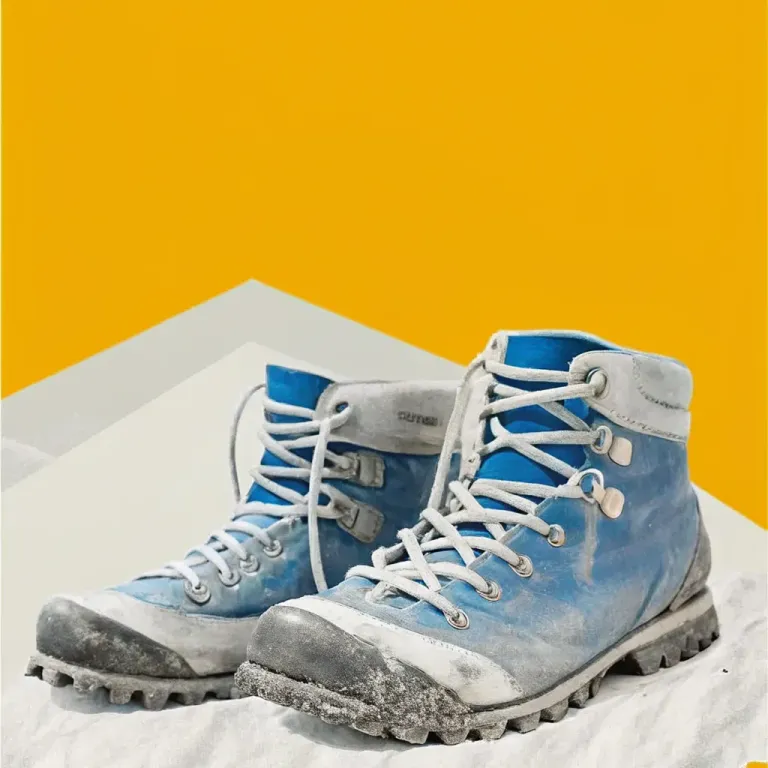
Turn Pain into Power
Podcast by Beta You with Alex and Michelle
Unshackle Your Mind and Win the War Within
Introduction
Part 1
Michelle: Alright everyone, welcome back. Alex, let's kick this off with a bit of a tough one: What do you reckon is harder – slogging through a hundred-mile run with feet that feel like they're on fire, or tackling those mental barriers that keep most of us playing small? Alex: You know, if you put that question to David Goggins, he'd tell you those blisters are just a minor annoyance compared to dismantling the mental obstacles we construct ourselves. And that's really the core of Can’t Hurt Me. It's about stretching the limits of what we believe is achievable by confronting pain, doubt, and fear head-on. Michelle: Sounds pretty hardcore, but intriguing nonetheless. For anyone who hasn't picked it up yet, the book is Goggins' life story – a journey from a really rough childhood, navigating setbacks and failures, to ultimately becoming this incredible endurance athlete and a Navy SEAL. But it’s more than just a story; it’s like a masterclass in building mental resilience. Alex: Exactly. And today, we're going to break down his approach by looking at three main areas. First, we’ll look at how he directly confronted his difficult upbringing to strengthen his mind. Honestly, a childhood like that could crush most people, but Goggins actually used it as a training ground. Michelle: And then we get into his almost unbelievable discipline, where pain isn't just something to bear – it's something you convert into a source of strength. The guy’s mindset is like a fortress. Alex: Right, and finally, we'll discuss his conviction that life's challenges, no matter how immense, are really opportunities for growth. It’s like a blacksmith shaping steel into something indestructible. Michelle: Okay, so get ready, folks. We’re swapping comfort for courage in today's episode. Let's dive in.
Confronting Trauma and Adversity
Part 2
Alex: Okay, let's dive into what really makes Goggins tick: his way of facing trauma and hardship head-on. His childhood wasn't just tough; it was a real battle. Abuse, racism, poverty—he went through all of it before he could even understand it. But instead of letting those things make him a victim, he made a choice to use them as fuel for a new him. Michelle: That's “callusing the mind,” right? I mean, we're talking about a guy who saw his father beat his mother, then escaped that into a world full of racism. Those early parts of his story are hard to read. It's like Goggins had to escape two traps—his father's house and his own inner despair. Alex: Precisely. Escaping wasn't just about leaving physically; it was about breaking free from the victim mindset. Goggins himself was stuck there for a while, blaming his problems on outside stuff. He talks about this moment when he had to look in the mirror—literally—and see that he was in charge of his own future. That's when taking radical responsibility became his mantra. Michelle: Right, the “Accountability Mirror.” The idea's simple: face your flaws—write them on sticky notes if you have to—and deal with them every day. No sugarcoating, no excuses. But, Alex, is that really healthy? I mean, knowing yourself is one thing, but doesn't constantly focusing on your weaknesses risk turning into self-hatred? Alex: That's a great question, and it's part of what makes Goggins' story so interesting. He's not saying you should obsess over your flaws forever. He’s saying being brutally honest is the first step to real growth. When he looked in the mirror and saw someone overweight, lazy, and full of excuses, he didn't let it make him feel ashamed. He used it as a wake-up call—a reason to do something. Michelle: It's like he turned self-criticism into motivation. But then there's his family too. That confrontation with his father? That's heavy stuff. How did Goggins deal with something as emotional as going back to the man who caused so much pain? Alex: It was one of the most important moments in his transformation, and he didn't take it lightly. When Goggins went back to see his father, it wasn't to get an apology or approval. He knew he probably wouldn't get that. It was about taking back control. By facing his father, he was facing the fear, anger, and resentment that had shaped him for years. Michelle: Makes sense... Still, it seems like not everyone deals with trauma the same way. Like Trunnis Jr., Goggins' brother. He went a different way—basically rewriting their childhood to make it less awful. It's like he chose peace over truth. Is that wrong? Alex: Not wrong, but limiting. Goggins points out that avoiding things—whether it's through denial, like his brother, or emotional distance, like his mother—can trap you just as much as the trauma itself. Sure, denial might feel good for a bit, but it stops you from truly healing. That's why Goggins says facing pain directly is the only way to really move on. Michelle: Okay, but what does “facing pain” really mean? Goggins is pretty direct about it—he talks about seeing pain as a chance for resilience. And that drowning rats experiment he talks about? It's disturbing, but I see why he uses it... Alex: It is disturbing, but it really shows the point. The idea is that the rats who thought they might be saved swam way longer than the ones who didn't. For Goggins, that's a symbol of human resilience: if you think you can endure, you'll find strength you didn't know you had. Pain isn't necessarily bad—how you see it decides whether it destroys you or makes you stronger. Michelle: Right, but getting there has to involve more than just toughness. He talks a lot about discipline and action driving belief and hope. You don't just wake up one day thinking, "I can handle anything." You have to prove it to yourself with small wins. Alex: Exactly. That's why Goggins is so into taking responsibility and working hard. The change starts with seeing your problems as challenges, not excuses. And you're right—it's not about being perfect overnight. It's about getting small wins, building mental toughness bit by bit. Michelle: Fair enough. But here's where I still struggle: some people might hear this and think, "My trauma isn't my fault—why should I have to take all the responsibility for getting over it?" Alex: That’s fair. Goggins acknowledges that trauma itself isn’t your fault. But he would say that while you can’t control everything that happens, you can control how you react. And that's the essence of taking control of your life. You’re not responsible for the damage, but you are responsible for fixing it. Michelle: It’s an intense way of looking at things—and not always easy to hear—but I get why it's so powerful. It makes you question your own excuses and limits, at the very least.
Discipline and Mental Fortitude
Part 3
Alex: So, Goggins moves from tackling trauma to the discipline needed to really leverage that resilience. It's not just about facing the pain, but actively using it, right? Michelle: Exactly. It's like he's saying, "Okay, I've stared down my demons ... now what?" And his answer is building this incredible, disciplined mindset. Alex: He's bridging that gap. He doesn't just acknowledge the pain; he turns it into something actionable. His whole philosophy is about this structured approach, consistent effort, turning adversity into strength. Michelle: And discipline is key. That brings us to Sgt. Jack, almost like his personal drill sergeant. Tell me more about this guy. Alex: Sgt. Jack was crucial for Goggins, and not because he was nice, necessarily. He was firm, relentlessly consistent. Picture this: Sgt. Jack banging on Goggins' door every morning with a list of physically demanding tasks – weeding, raking, you name it. It wasn't about the task itself; it was about accountability and routine. Michelle: “Get up, get moving, do the work – no excuses.” Sounds simple, but come on, most of us would have quit by week two! Alex: Absolutely, and Goggins did resist at first! He rebelled, you know, sagged his pants, ignored the chores, rejected authority. But then reality hit. His grades were failing, his military dreams were fading, and he realized he needed some kind of structure to turn it around. Michelle: So he goes back to Jack... What was different this time? Why didn't he just keep rebelling? Alex: Jack didn't indulge him. No handouts, no "atta boy's". He just offered consistency and high expectations. Gradually, those "menial" tasks became rituals for Goggins – each one a chance to build humility, resilience, and self-respect. He saw them not as punishments, but as stepping stones. Michelle: I'm with you, but the phrase "weeding builds character" does give me pause, I got to admit. How does this translate to, you know, the bigger stuff? Hell Week isn't exactly raking leaves. Alex: Good point. The discipline he developed under Jack laid the foundation. Every task Jack demanded reinforced that hard work is non-negotiable, no matter how small. That mindset is what carried him through Hell Week later on, when the stakes were much higher. Michelle: Speaking of Hell Week, let’s talk about the "Mental Lab." He takes these brutal moments and turns them into a mental dojo, dissecting every failure for a lesson. Alex: The Mental Lab is a transformative concept. It's his process for self-reflection and recalibration. During his second Hell Week – five-and-a-half days of sleep deprivation and relentless physical punishment – Goggins realized there wasn't room for long-term planning. Survival came down to momentary mental clarity. Michelle: Which brings us to the "One-Second Decision," right? When panic or exhaustion creeps in, you focus on just the next second, instead of everything else in front of you. Alex: Exactly! Breaking down overwhelming challenges into manageable pieces. During Hell Week, a trainee named Mora was ready to quit. That forced Goggins to confront his own fear. Instead of spiraling, he leaned into the One-Second Decision. He asked himself, "What's the next actionable step?" And then the next, and the next. Michelle: It’s fascinating how he tricks his brain into submission. By focusing on the immediate, he shuts out the doubt and exhaustion. Mental chess against himself, always one move ahead. Alex: Exactly, and these small wins in the Mental Lab stack up, building mental resilience that gets stronger with every test. It's not just Hell Week – he applies this framework to all adversities. Michelle: Like his ultramarathons. We're talking running 100 miles, regularly. Most people would think that's impossible, Goggins dives into those challenges headfirst! Alex: Because physical pain, for him, is just another learning opportunity. Like his preparation for the Leadville Ultramarathon – 100 miles through the Colorado mountains. Goggins trained by running 100-mile weeks. Every step was a reminder of the Mental Lab: break the task into immediate goals, embrace the discomfort, and keep moving forward. Michelle: And then there’s the false summit metaphor, so Goggins! You're climbing this hill, thinking, "Almost there!" ... and then there's another one right behind it. But he reframes those moments as opportunities to test his endurance. Alex: It's a powerful lesson – discomfort is inevitable, but your response defines you. Each false summit reminds him to focus on the journey, not just the destination. Michelle: Okay, I see how this builds discipline. But what about practical takeaways? Tools Goggins recommends that we can actually use? Alex: Absolutely. The One-Second Decision – choosing resolve over fear, moment by moment. Reframing pain – seeing it not as a barrier but as a prerequisite for growth. Incremental focus – tackling one small step at a time. And finally, routine. Consistent daily efforts prepare you for whatever adversity may come. Michelle: It’s less about the extraordinary things he does, and more about structuring his ordinary days. Train hard, stay consistent, and when life throws unexpected curveballs – you're ready. Alex: Exactly. His story is proof that extraordinary strength is built through ordinary discipline. Not magic, it’s methodical, intentional, and sure, uncomfortable. But it works. Michelle: Fair enough. And while I’m not signing up for a 100-mile race anytime soon, I can’t argue with his logic. Discomfort as a teacher… makes you rethink every excuse you’ve ever made.
Legacy and Continuous Growth
Part 4
Alex: Right, so after mastering discipline, Goggins takes it a step further, applying resilience more broadly. It's almost like he's asking, "Okay, how do we take this personal grit and make it bigger than just ourselves?" Michelle: Exactly! It's no longer a solo mission, it's leveraging the “Legacy and Continuous Growth” to makes grit a shared experience. It’s about pushing your boundaries but also lighting a fire in others. Essentially, he believes his own personal growth can inspire others to also break through their limitations. Goggins is practicing it through the 4x4x48 Challenge and also through his leadership, plus that 'never finished' attitude. Alex: Right. Michelle: So, this isn't just about enduring pain for fun anymore, right? It's about creating those knock-on effects, where your growth positively impacts the collective. Tell me more about the 4x4x48 Challenge. What makes it special? Why not just an ego trip? Alex: Well, initially, it was Goggins testing his limits, right? Imagine running four miles, every four hours, for two days straight. Seriously brutal. But what’s really cool is it became this global thing, you know? People all over do it, raising tons of money for charity. Michelle: Interesting. So, what made this masochistic event so popular? Alex: Because it represents Goggins' core beliefs, right? First, it reinforces the idea that big achievements are built step by step. Second, it forces participants to confront themselves, ditching the excuses. And finally, it’s the community, connecting personal growth with doing good. Michelle: Got it. People push themselves to their limits, but also grow from it. Personal growth is also for all. Is there a particular story that shows this? Alex: Actually, yeah, one stands out. This guy was recovering from a really bad car accident, and he used the challenge to reclaim his agency. It wasn’t about the running; it was about proving he could overcome his doubts and physical limitations. He saw it as a way to say, "If I can do this, I can rebuild my life." And you know, that’s exactly what Goggins means when he says our personal wins can inspire others. Michelle: That idea, that individual grit can have bigger societal impact, is somewhat inspiring. However, isn't there a risk of glorifying suffering here? Will people correlate their worth with how much pain they are able to take? Alex: That’s a really good point. Goggins isn’t saying that suffering is the goal. What he’s saying is, discomfort forces you to see what you’re capable of when you push past where you think your limits are. Same with community events—it’s not about suffering, but about creating meaningful connections between effort, growth, and giving back. Michelle: Okay, I understand all of that. But how would someone break through the social or mental barriers like those from cultural norms or upbringing? He emphasizes becoming an “outlier,” doesn't he? Alex: Absolutely. To Goggins, outliers defy societal norms that try to define them. Look at his early life. Someone growing up in poverty, surrounded by violence and racism, isn’t "supposed" to succeed. But he fought that narrative. He always says, “Someone has to break the mold.” Michelle: Yeah, and he is a doer. Look at his return to Buffalo. He came back to his hometown, visiting the places tied to his past trauma. A cathartic and horrifying act. Alex: Definitely. You know, when he visited his childhood home or met people stuck in the same cycles, it reinforced that he’d broken free—both physically and mentally. He uses that to challenge others. Instead of settling for comfort, he says, "Face the hard truths. Break the mold for your family and your community.” Michelle: That’s a lot of responsibility. Does Goggins realize how exhausting to be the one carrying the torch? Alex: He totally understands the burden. However, he considers it a necessity. To him, it’s not about whether the path is easy, but about whether it’s worth it. Goggins views leadership as an influence, not a position. And that leads to the next point, his development as a leader. Michelle: True. What's interesting about his leadership style is how his actions speak louder than sermons. Alex: Exactly. Goggins was inspired by mentors such as Captain Connolly, who portrayed quiet, relentless leadership. Connolly showed excellence through action, not words. Goggins embraced it, realizing that true leadership comes from showing up authentically and consistently, but not from titles or praise. Michelle: So, it is “Follow as I do” rather than “Do as I say”. Also, it sounds like it aligns with his responsibility philosophy. Is this Leadership style applicable to anyone? Or is a character of Goggins-level required? Alex: You don’t need his intensity, but you do need his intentionality. Leadership starts with holding yourself accountable. Goggins believes that the best leaders lead by example because people are more likely to follow when they see you living your values. And that ripple effect takes care of the rest. Michelle: About that ripple effect, what purpose does Goggins envision those ripples ultimately serving? Alex: Goggins redefines legacy as a “never finished” mindset. It’s not about awards or trophies, but about ongoing development. Your legacy isn’t an end goal; it’s the continuous act of breaking limits and inspiring others to do the same. Michelle: Thinking of the Moab 240 Race. Rather than simply achieving something notable, running 240 miles serves as a metaphor. He considers the finish line as another step toward the next challenge, not the end. Alex: Exactly. Each race, challenge, and accomplishment reminds you that there’s always more to learn, grow, and share. To Goggins, legacy is built through persistence, resilience, and the courage to face life’s challenges—and then using those experiences to uplift others. Michelle: So, the key here is that we’re always evolving. It makes no difference whether it's having an effect on a community or experiencing personal growth. It is the journey that shapes us. Intense, bold, and definitely inspiring.
Conclusion
Part 5
Alex: Okay, let's bring this home. When you strip it all away, “Can't Hurt Me” is really about facing those painful truths, those doubts, the limitations we convince ourselves we can't overcome. Goggins is saying that resilience isn't something you're born with, it's something you actively build through discipline, brutal honesty with yourself, and a real willingness to step outside your comfort zone. Michelle: Right, and he's not trying to give us some sunshine-and-rainbows version of it either. Whether it's his traumatic childhood, enduring Hell Week, or running those insane ultramarathons, Goggins demonstrates that progress isn't smooth – it’s often uncomfortable, messy, and yeah, even painful. But it’s through that process that we tap into our potential. Alex: Precisely. And what's more, his message goes beyond just personal development. He wants us to think about how our own struggles can be used to push beyond societal norms, inspire others, and really redefine what it means to leave a legacy. Michelle: So, here’s the real question: What if you looked in your own Accountability Mirror? What excuses are you making? What limits have you just been accepting as fact? How can you push past them, even incrementally, one uncomfortable step at a time? Goggins’ message is not about becoming some Terminator-like figure; it’s about consistently growing into a stronger, more purposeful version of yourself. Alex: Absolutely. Because ultimately, it's not just about the hardships you've faced, it's about what you choose to do with them.




